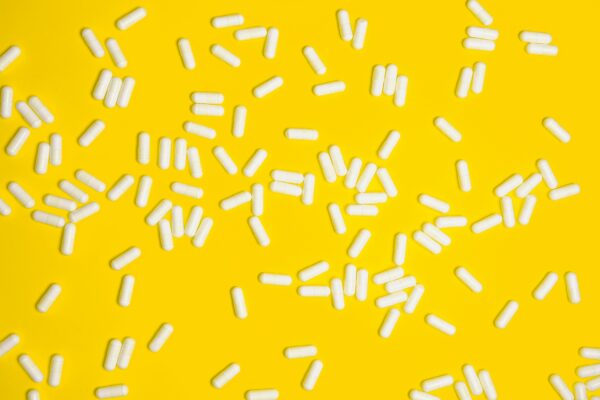Losing an erection quickly can feel frustrating and even a little embarrassing, but it’s actually a pretty common issue. Whether it happens occasionally or more frequently, you’re not alone in wondering why this happens and what you can do about it. From physical factors like blood flow and hormone levels to psychological aspects like stress or anxiety, there are many potential reasons behind this problem. The good news? Most causes can be managed, and you can get back to feeling confident in the bedroom.
In this guide, we’ll walk you through the most common reasons for losing an erection quickly, what you can do to prevent it, and some practical solutions that really work. Let’s dive in and figure out how to take control of your sexual health again!
.
Common Physical Causes of Rapid Erection Loss
Hormonal Imbalance
One of the primary causes of erection problems is a hormonal imbalance. Low levels of testosterone, the male hormone responsible for libido and sexual performance, can significantly impact erection strength and longevity. Men with low testosterone levels often experience a decreased desire for sex, making it harder to maintain an erection. Hormone testing can determine if this imbalance is present, and hormone therapy may be recommended in severe cases.
Circulatory Issues
A healthy blood flow is crucial for maintaining an erection. Circulatory problems like atherosclerosis (narrowing of the arteries) or high blood pressure can restrict the amount of blood reaching the penis. If there’s insufficient blood supply, it becomes difficult to sustain an erection for any length of time. Diabetes is another major contributor, as it can damage blood vessels over time, leading to erectile dysfunction.
Medications
Certain medications can affect your ability to maintain an erection. Common culprits include antidepressants, blood pressure medications, and even some over-the-counter drugs. These medications can alter blood flow, affect hormone levels, or dampen your libido, leading to premature loss of an erection. If you suspect your medications are causing this issue, consult with your healthcare provider to discuss alternatives.
Obesity and Lack of Exercise
Being overweight or living a sedentary lifestyle can also contribute to erection problems. Excess weight can lead to a range of health issues, including poor circulation, diabetes, and hormonal imbalances. Furthermore, lack of physical activity reduces stamina and endurance, making it harder for men to maintain erections. Incorporating regular exercise into your routine can help improve overall cardiovascular health and sexual performance.
Substance Abuse
Alcohol and drug abuse can severely impair sexual performance. While alcohol may lower inhibitions initially, excessive consumption can depress the nervous system, making it difficult to achieve or sustain an erection. Similarly, recreational drugs like marijuana, cocaine, and opioids can disrupt your body’s ability to perform sexually.
Erectile Dysfunction Symptoms: A Comprehensive Guide to Understanding, Identifying, and Managing ED
Psychological Factors Affecting Erection Longevity
Performance Anxiety
Performance anxiety is one of the leading psychological causes of rapid erection loss. When a man is overly focused on impressing his partner or worries about his sexual prowess, the stress can prevent him from staying relaxed. This leads to the release of stress hormones like cortisol, which can inhibit the ability to maintain an erection. Reducing anxiety and focusing on relaxation techniques may help.
Stress and Fatigue
Daily stress from work, relationships, or financial concerns can take a toll on your sexual health. Chronic stress can impair your libido and lead to a decrease in sexual satisfaction. Additionally, fatigue from a busy lifestyle or poor sleep habits can drain your energy levels, making it harder to maintain an erection. Taking steps to manage stress and ensure proper rest is essential for sustaining sexual performance.
Depression
Depression is a mood disorder that can dampen a person’s desire for sexual activity. It can also interfere with the brain’s ability to send the necessary signals to trigger an erection. Men suffering from depression may find it difficult to stay aroused or maintain an erection throughout sexual activity. Seeking counseling or treatment for depression can often improve sexual function.
Relationship Issues
Emotional conflicts with your partner can contribute to difficulties in maintaining an erection. If there’s tension, lack of communication, or unresolved issues in your relationship, it can lead to a lack of intimacy and connection during sex. Addressing these underlying relationship problems through open communication or therapy can help improve your sexual experiences.
How to Treat and Prevent Rapid Erection Loss
Lifestyle Changes
Implementing a few key lifestyle changes can have a significant impact on your ability to maintain erections. Start by adopting a balanced diet rich in fruits, vegetables, lean proteins, and whole grains. This can improve your overall health and reduce factors like high cholesterol, obesity, and diabetes, which affect sexual performance. Regular exercise is also important, as it improves cardiovascular health and boosts energy levels.
Reduce Alcohol and Drug Intake
Cutting back on alcohol and drug use can help restore sexual function. Limit your alcohol intake to moderate levels (one to two drinks per day) and avoid recreational drug use. If you struggle with substance abuse, seeking professional help is essential for both your physical and sexual health.
Improve Sleep and Manage Stress
Good sleep hygiene and stress management are critical for sexual performance. Aim for at least seven to eight hours of quality sleep per night. Relaxation techniques like meditation, deep breathing exercises, or yoga can reduce stress levels and improve your ability to stay calm during sexual activity. Addressing mental health issues like anxiety and depression through counseling or therapy is also an important step.
Seek Medical Advice
If you’ve tried lifestyle changes and are still experiencing rapid erection loss, it’s time to consult with a healthcare professional. They may recommend treatments such as PDE5 inhibitors like Viagra or Cialis, which can help maintain an erection during sexual activity. In some cases, hormone therapy or addressing underlying medical conditions like heart disease or diabetes may be necessary to improve erectile function.
Psychological Counseling
For those whose erection problems stem from psychological issues, working with a qualified therapist or counselor can make a world of difference. Cognitive-behavioral therapy (CBT), in particular, has been shown to help men overcome performance anxiety and other emotional barriers that lead to erection loss.
Conclusion
Dealing with quick erection loss can be challenging, but the important thing to remember is that it’s often fixable. By understanding the physical and emotional factors at play, you can take steps to address the issue head-on. Whether it’s improving your lifestyle, reducing stress, or seeking help from a healthcare professional, there are plenty of ways to get back on track.
So, don’t let this issue hold you back—make the changes you need, seek support where necessary, and regain confidence in your sexual performance. You’ve got this!
What to Do If I Can’t Get Hard: Comprehensive Solutions for Erectile Dysfunction
Testosterone and Erectile Dysfunction: Addressing Performance Issues in Men





